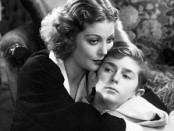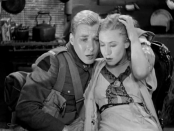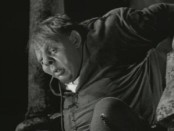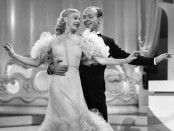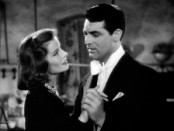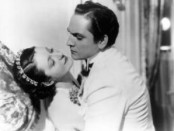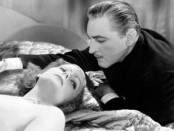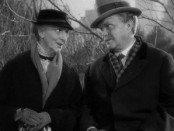[6] Cary Grant and Loretta Young star in this pre-Code drama about a devious mother and her young son who feign injury to fleece a wealthy businessman after a minor car accident. Hollywood is known for neat and tidy little narratives, but if you dig into the years before the Hayes Code took effect, you can find some offbeat gems. You certainly wouldn’t see a …
1930’s
[7] Hollywood’s most celebrated melodrama is still entertaining today. Vivien Leigh does a remarkable job playing one of the most volatile heroines in film history. Scarlet O’Hara begins Margaret Mitchell’s story damned spoiled, and I’m not sure she ever really learns her lesson, but Leigh renders a subtle transformation while always remaining true to character. My other favorites are Olivia de Havilland (sweet in everything …
[7] This is the first of at least three film versions of Robert L. Sherwood’s play about an American soldier who falls in love with a Londoner during a World War I air raid, unaware that she is a prostitute. Director James Whale (Frankenstein, The Invisible Man) delivers a solid melodrama with two great lead performers. I was particularly taken with Kent Douglass as Roy. …
[6] Charles Laughton’s performance as Quasimodo is the main reason to see this movie. Laughton gives the deformed bell ringer moments of quiet torment as well as unbridled joy, and without ever going over the top – a remarkable feat that should have earned him an Oscar nomination. I also liked Cedric Hardwicke as the malevolent Frollo and Maureen O’Hara (in her screen debut) as …
[6] Fred Astaire and Ginger Rogers, filmdom’s undisputed dancing duo, are at their apex in Swing Time, directed by George Stevens (is there any genre that man didn’t tackle?) I’m not a fan of old song and dance flicks, but Swing Time is cute enough. The dancing sections are consistently entertaining and technically innovative. My favorite number is one where Astaire dances with three shadows …
[8] George Cukor directs from the play by Philip Barry (The Philadelphia Story), giving Katharine Hepburn and Cary Grant a chance to shine in this screwball romance. There’s not a Hepburn/Grant pairing I don’t like, and this one comes with a great supporting performance by Lew Ayres as Hepburn’s sobriety-impaired brother. Grant plays a somewhat Bohemian man who falls in love with a rich socialite …
[5] I love the concept, but Death Takes a Holiday has a hard time overcoming the theatricality of its source material, a stage play by Alberto Casella. The sets are extravagant and the visual effects used to depict Death are remarkable for the time (double-exposure with a moving camera — I don’t know how they did it without computers). But the film is way too …
[6] The lives of tenants at a Berlin hotel interconnect over the course of one day in Grand Hotel, based on the novel by Vicki Baum and produced by the famed Irving Thalberg. With Greta Garbo, Joan Crawford, Jean Hersholt, Wallace Beery, and the Barrymores (John and Lionel), this Best Picture Oscar-winner is regarded the grandfather of star-studded showcases. Despite the star power, the performances …
[8] Leo McCarey won the best director Oscar for The Awful Truth, released the same year, but told the Academy they’d awarded him for the wrong picture. He may be right. Make Way for Tomorrow is a disarming, bonafide love story between an elderly couple (Victor Moore and Beulah Bondi) who are forced to separate when the bank forecloses on their home. The film is …
[6] Katharine Hepburn plays a daring aviator, her first starring role, in Christopher Strong. You can see a lot of the attitude and behavior that would later define her career in this early talkie. But the film, directed by Dorothy Arzner, is far from a triumph for feminist viewers. Hepburn’s character begins an affair with a married man and ends up paying the ultimate price …

